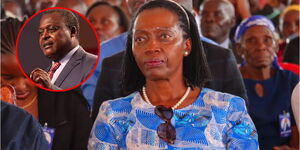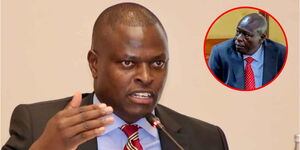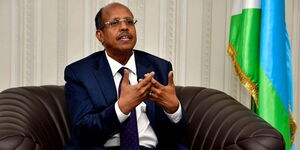The International Monetary Fund (IMF) is set to review Kenya's debt situation to determine how much more monetary support the country can be offered.
Known as the debt sustainability analysis, the review is crucial for the IMF to assess whether Kenya can repay future loans. The IMF is also keen to determine how much help can be safely offered to Kenya.
In March 2025, it was revealed that Kenya and the IMF were on course to discuss a new lending programme and effectively abandon the current one.
This was revealed by the IMF's mission chief, Haimanot Teferra, who said: "The IMF has received a formal request for a new program from the Kenyan authorities and will engage with them going forward."
Teferra, while confirming the IMF's receipt of a new programme by the Kenyan government, did not specify whether it would be a lending or non-lending programme.
The IMF board is set to meet to consider Kenya's request for a new program, but this meeting will only take place after the debt sustainability analysis.
Whether Kenya will be portrayed positively by the IMF after the review remains uncertain, but one thing is clear — the country faces a challenging financial future. Over the next decade, the country must raise at least Ksh3.36 trillion ($26 billion), which will be used to repay maturing loans.
Further, the government needs an upward of Ksh193.5 billion ($1.5 billion) yearly, which will solely go to interest on external debt.
In Treasury's upcoming budget, there is no inclusion of IMF loans, which is possibly, a sign that the country is shifting financial priorities and more realistic targets are being set, especially after falling short in the past.
As recently as 2023 and 2024, the country failed to meet its revenue targets, as an attempt to introduce new levies, through the Finance Bill, was met with protests across the country.
Besides the debt review, the IMF plans to kick-start a separate investigation into how corruption is draining Kenya's public coffers. This assessment will start in June 2025.
As far as debt management is concerned, Treasury Cabinet Secretary John Mbadi denounced the notion that the country's economy was on its knees because of crippling debt assuring that despite the struggles, Kenya was on course to become debt free by 2032.












